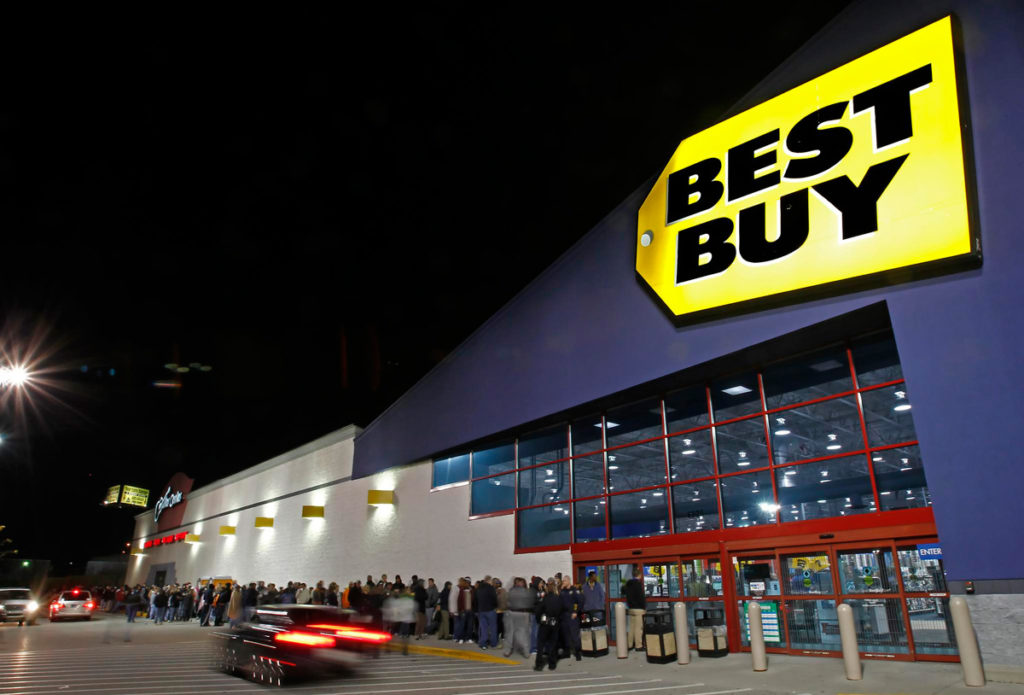
Best Buy is closing its 250 small-format mobile phone U.S. stores, but rather than reflect problems at the electronics retailer, the move illustrates so much of what it has been doing right as it proves a retailer can push back at Amazon.com.
The company on Thursday reported that comparable sales jumped 9% during the holiday quarter that ended Feb. 3, head and shoulders above the average Wall Street estimate for a 2.9% rise, according to Consensus Metrix. That stellar performance, the chain’s best in fifteen years, was bolstered by outside factors such as having more mobile phones to sell and the bankruptcies of RadioShack and hhgregg and ongoing problems at Sears. But it owes more to Best Buy’s willingness to experiment as well as to its discipline.
In a letter to staff on Wednesday, Best Buy CEO Hubert Joly said that the stores, a small fraction of its business generating 1% of sales, had simply become unprofitable. The mall-based mobile stores, at 1,400 square-feet only 3% the size of a regular Best Buy, were opened a decade ago well before the smartphone boom ushered in by Apple’s iPhone and when margins were higher. But no more. “Fast forward to 2018 and the mobile phone business has matured, margins have compressed and the cost of operations in our mobile standalone stores is higher than in our big box stores,” Joly said in the letter.
Instead, Joly has preferred to keep Best Buy focused on new sources of growth, such as more space for partners such as Amazon and Apple in its stores, an emphasis on growth areas such as smart home products, better product presentation, and a heavy investment in e-commerce to fully integrate the physical with the digital. Online sales were up 17.9% in the U.S. during the holiday quarter and now make up 20% of total revenue, in large part thanks to their interplay with physical retail.
“Best Buy continues as a bright spot in U.S. retail,” Moody’s analyst Charlie O’Shea wrote in a research note. “Consumers still value the store experience.” And that means deploying resources to the part of the businesses that are growing. To be sure, the downsizing or disappearance of some rivals gave Best Buy a boost. But its own initiatives deserve a lot of credit: among other things, Best Buy has been reinventing its Geek Squad to better leverage its workers’ expertise in stores and one-on-one house calls to help customers understand, install and better use the vast numbers of tech products. Best Buy now has about 375 consultants in its home service program.
The company also made sure to have more product available during the holiday season to avoid out of stocks and was well positioned to take advantage of heightened consumer interest in products like mobile phones and video games.
“The company was firing on all cylinders,” Joly told reporters on a conference call. Best Buy expects full-year revenue of between $41 billion and $42 billion this year, ahead of the $40.86 billion expected by Wall Street, showing Joly’s confidence that Best Buy will continue to have wind in its sails.























